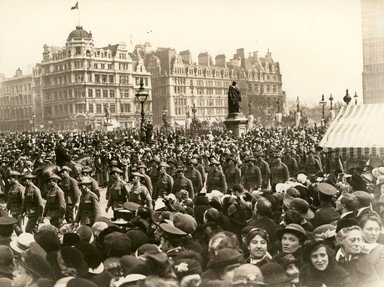Quiz Answer Key and Fun Facts
1. What was the meaning of the term 'The Cisalpine Republic'?
2. What is the meaning of the term 'Cinque Ports'?
3. What does 'the Civil List' mean and refer to in the UK?
4. What does the term 'Beer Hall Putsch' refer to?
5. What is meant by the term 'The Big Four'?
6. What is meant by the term, 'Compagnies d'Ordonnance'?
7. What does the term 'The Golden Horde' refer to?
8. What is the meaning of the term 'The Great Schism' when referring to an event in the late 14th century? (Please note the century).
9. What is meant by the term 'the Grey Shirts Movement'?
10. What does the term 'Hanseatic League' refer to?
Source: Author
trojan11
This quiz was reviewed by FunTrivia editor
bloomsby before going online.
Any errors found in FunTrivia content are routinely corrected through our feedback system.
